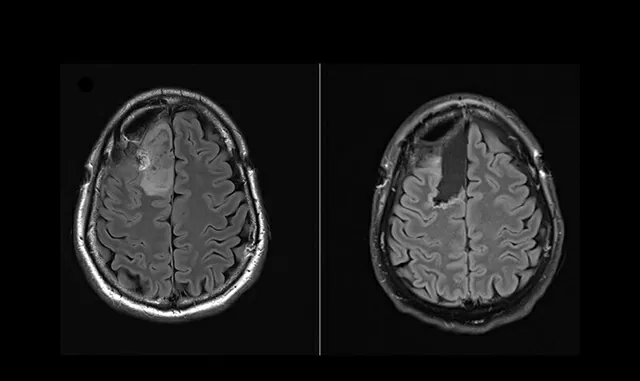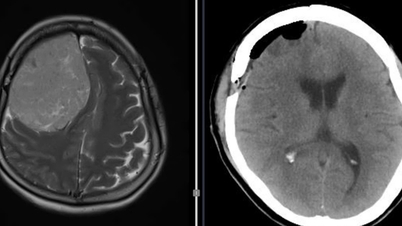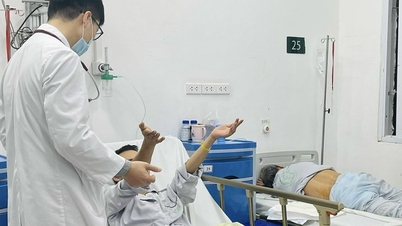 |
| New treatment method for brain tumors. (Source: wehi.edu.au) |
The type of cancer studied was low-grade glioma (LGG), a slow-growing disease that severely impacts the quality of life of patients, primarily young people in their prime.
LGG is associated with a specific gene mutation called IDH, which makes the disease difficult to treat and has long been considered "incurable".
However, researchers have found a solution in the form of a new treatment method, thanks to the discovery of mutations in LGG and an innovative processing procedure.
In the experimental study, scientists used Safusidenib, an oral medication capable of inhibiting the mutated IDH1 gene .
By observing tumor samples before and after drug administration, a research team from the Royal Melbourne Hospital (RMH) and the Peter MacCallum Cancer Centre directly witnessed positive changes in cancer cells.
These promising results were recently published in the journal Nature Medicine .
Dr. Kate Drummond, Director of Neurosurgery at RMH and principal investigator of the project, stated: "This is not only a breakthrough in how we validate treatment effectiveness, but it also opens up new opportunities for a group of patients who are often disadvantaged by a serious illness."
Meanwhile, Dr. Jim Whittle, who works at the Peter MacCallum Cancer Center and is the lead researcher, said that trials involving biopsy samples before and after treatment to measure the impact are common in many other types of cancer, but due to the complexity of neurosurgery, they have never been applied to brain tumors.
Research demonstrates that BrainPOP is a safe, effective platform that reveals the detailed effects of drugs in the brain, thereby enabling patients' families to make personalized treatment decisions.
Source: https://baoquocte.vn/thu-nghiem-lam-sang-lan-dau-tien-tren-the-gioi-ve-phuong-phap-dieu-tri-u-nao-325661.html












































































































Comment (0)